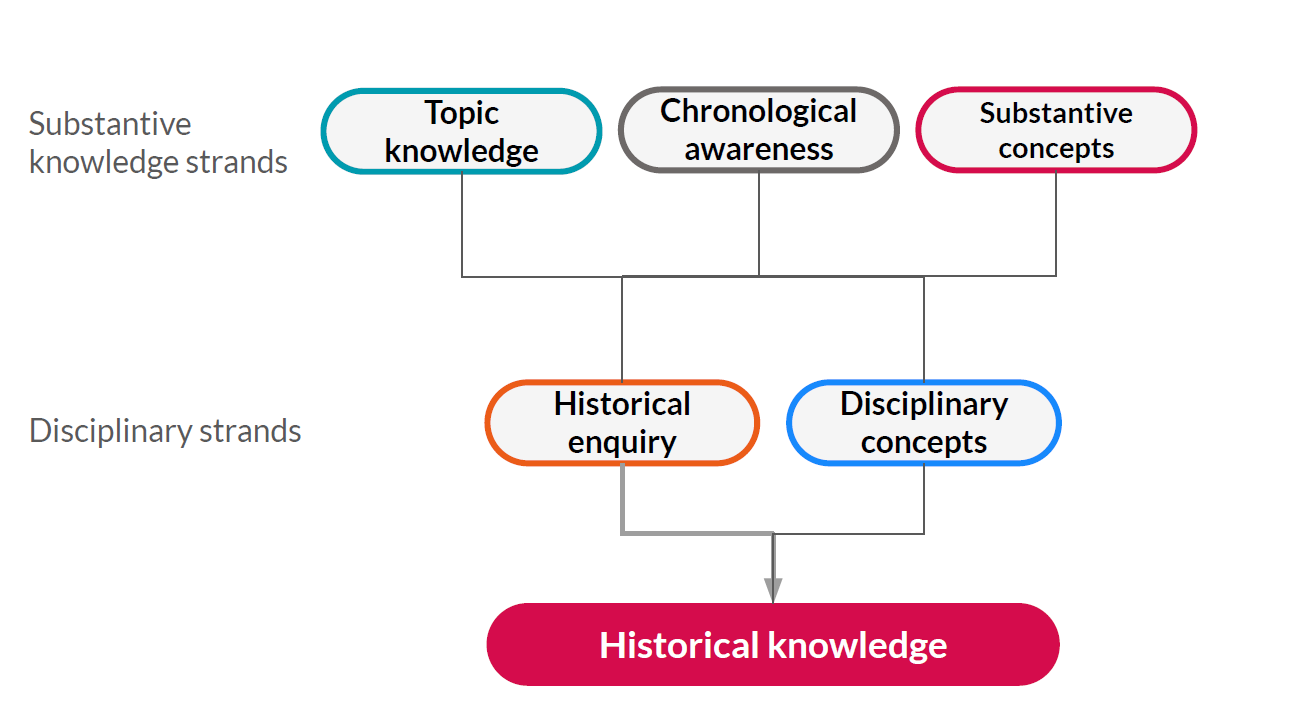History
Subject Leader (2024-2025): Mrs L Atkinson
INTENT
At St. Mary's C of E Primary Academy we want all our children in history to:
- Learn as much as possible by developing a coherent knowledge and understanding of Britain’s past and that of the wider world.
- Ignite curiosity to find out more about the past by asking perspective questions, thinking critically in relation to historical evidence and being able to weigh up the usefulness of different sources.
- Show humility by reflecting thoughtfully upon how people’s lives have changed over time and the reasons why. This will allow our children to take on the world by understanding that change is a normal part of growing and life.
IMPLEMENTATION
At St Mary’s C of E Primary Academy, we teach History lessons in class with one timetabled lesson per week. This is done for 3 half terms of the year.
Our weekly lessons use Kapow as a teaching resource. Kapow Primary’s History scheme of work aims to inspire pupils to be curious and creative thinkers who develop a complex knowledge of local and national history and the history of the wider world. We want pupils to develop the confidence to think critically, ask questions, and be able to explain and analyse historical evidence.
Through Kapow’s scheme of work, we aim to build an awareness of significant events and individuals in global, British and local history and recognise how things have changed over time. History will support children to appreciate the complexity of people’s lives, the diversity of societies and the relationships between different groups. Studying History allows children to appreciate the many reasons why people may behave in the way they do, supporting children to develop empathy for
others while providing an opportunity to learn from mankind’s past mistakes. Kapow Primary's History scheme aims to support pupils in building their understanding of chronology in each year group, making connections over periods of time and developing a chronologically-secure knowledge of History.
In order to meet the aims of the National curriculum for History and in response to the Ofsted Research review into History, Kapow have identified the following key strands:

The Kapow Primary scheme emphasises the importance of historical knowledge being shaped by disciplinary approaches. The substantive knowledge strands of topic knowledge, chronological awareness and substantive concepts lead to the disciplinary strands of historical enquiry and disciplinary concepts, ultimately leading to historical knowledge, as in the diagram above. These strands are interwoven through all History units to create engaging and enriching learning experiences which allow the children to investigate history as historians do.
Each six-lesson unit has a focus on chronology to allow children to explore the place in time of the period they are studying and make comparisons in other parts of the world.
Children will develop their awareness of the past in Key stage 1 and will know where people and events fit chronologically. This will support children in
building a ‘mental timeline’ they can refer to throughout their learning in Key stage 2 and identifying connections, contrasts and trends over time. The Kapow Primary timeline supports children in developing this chronological awareness.
Over the course of the scheme, children develop their understanding of the following key disciplinary concepts:
• Change and continuity.
• Cause and consequence.
• Similarities and differences.
• Historical significance.
• Historical interpretations.
• Sources of evidence.
Lessons are designed to be varied, engaging and hands-on, allowing children to experience the different aspects of an historical enquiry. In each lesson, children will participate in activities involving disciplinary and substantive concepts, developing their knowledge and understanding o Britain’s role in the past and that of the wider world. Children will develop their knowledge of concepts and chronology as well as their in-depth knowledge of the context being studied.
Outline of our Scheme of Work
Assessment
For each Kapow unit there is a specially designed pre and post-unit assessment activity. We will conducted these twice: this first determines the baseline; it's then repeated at the end of the unit, so that we can monitor children’s progress and identify areas for further development. From these assessments, both children and teachers will be able to see the progress that has been made over the course of each half-termly unit of lesson plans.
Inclusion
Our curriculum is accessible for all, with support for pupils with SEND and opportunities to challenge the more able. Kapow provides strategies to support pupils with SEND and ways to challenge more able learners. Teachers will make adaptations to work for children with SEND.
IMPACT
The impact of Kapow Primary’s scheme can be constantly monitored through both formative and summative assessment opportunities. Each lesson includes guidance to support teachers in assessing pupils against the learning objectives. Furthermore, each unit has a skill catcher and knowledge assessment quiz which can be used at the end of the unit to provide a summative assessment.
After the implementation of Kapow Primary History, pupils should leave school equipped with a range of skills to enable them to succeed in their secondary education. They will be enquiring learners who ask questions and can make suggestions about where to find the evidence to answer the question. They will be critical and analytical thinkers who are able to make informed and balanced judgements based on their knowledge of the past.
The expected impact of following the Kapow History scheme of work is that children will:
● Know and understand the history of Britain, how people’s lives have shaped this nation and how Britain has influenced and been influenced by the wider world.
● Develop an understanding of the history of the wider world, including ancient civilisations, empires, non-European societies and the achievements of mankind.
● Develop a historically-grounded understanding of substantive concepts - power, invasion, settlement and migration, civilisation, religion, trade, achievements of mankind and society.
● Form historical arguments based on cause and effect, consequence, continuity and change, similarity and differences.
● Have an appreciation for significant individuals, inventions and events that impact our world both in history and from the present day.
● Understand how historians learn about the past and construct accounts.
● Ask historically-valid questions through an enquiry-based approach to learning to create structured accounts.
● Explain how and why interpretations of the past have been constructed using evidence.
● Make connections between historical concepts and timescales.
● Meet the relevant Early Learning Goals at the end of EYFS (Reception) and the end of key stage expectations outlined in the National curriculum for History at the end of Key stage 1 and 2.
The impact and measure of this is to ensure that children at Hunslet St Mary’s are equipped with historical skills and knowledge that will enable them to be ready for the curriculum at Key Stage 3 and for life as an adult in the wider world.
We want the children to have thoroughly enjoyed learning about history, therefore encouraging them to undertake new life experiences now and in the future. Our History Curriculum is high quality, well thought out and is planned to demonstrate progression. If children are keeping up with the curriculum, they are deemed to be making good or better progress. Subject leader – enrichment for different groups of pupils identified.
